
We kindly inform you that, as long as the subject affiliation of our 300.000+ articles is in progress, you might get unsufficient or no results on your third level or second level search. In this case, please broaden your search criteria.

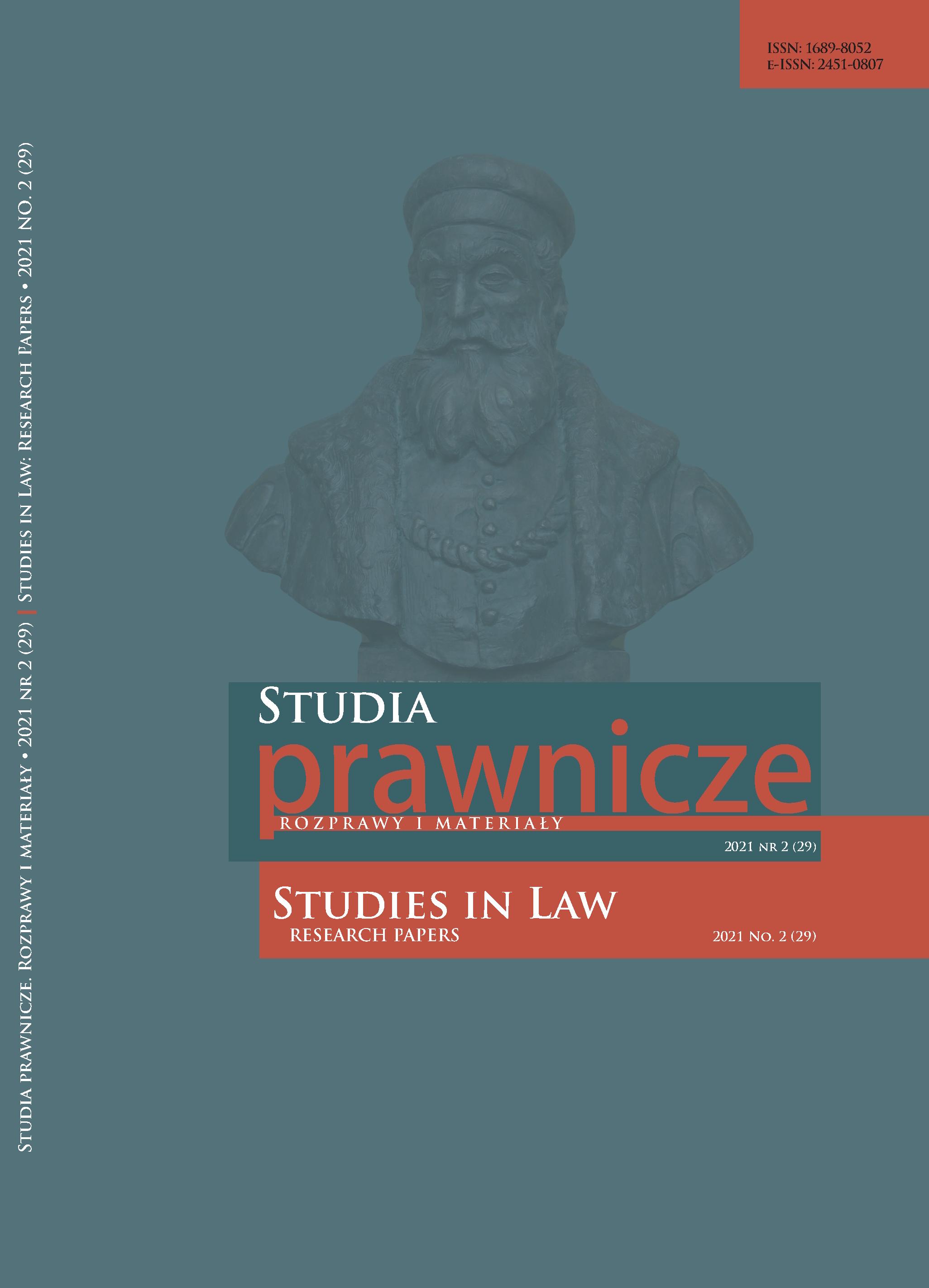
The Ombudsman’s Office of public bodies constitutes a strategic and democratic space for communication between the citizen and this Government Institution, aiming at strength- ening the mechanisms of social participation. It is essential for its consolidation that the citizen has a space to request information, register suggestions, praise, complaints and denunciations, obtaining an agile and resolute response to his manifestation. For that, it is necessary to improve an Ombudsman with the concept of participative management and democratization of information, which provides an effective service, capable of seek- ing the solution of the manifestations. In addition, these manifestations must be orga- nized in management reports aimed at informing and subsidizing the managers of public agencies, serving as an instrument for positive changes in the course of the Audits. This article aims to implement proactive actions in order to foster Social Control, through the participation of society and encouraging the exercise of citizenship. In order to carry out this investigation, it was necessary to apply the dogmatic method, as the hermeneu- tics of the normative texts recommends, but also the need for doctrine and transversality was necessary, since it is an interdisciplinary theme with a high political and sociological content, everything basked by a tradition of egalitarian rationalist thinking and based on international human rights hermeneutics. In conclusion, we identified that the Ombuds- man’s Office aims to improve the exercise of Social Control and be another effective tool for institutional management and transformation. Its main task is to promote a dialogue between the public institution and society. For this to happen, citizen participation is essential, representing a strong allied body for the realization of significant changes in Public Administration, which fundamentally cares for the public interest.
More...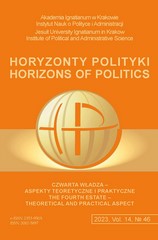
RESEARCH OBJECTIVE: The aim of the article is to answer the question whether the activities of the Human Rights Defender can be perceived as an element of the legalism of public power, when mechanism of exercising power in the state is based on its politicization and subordination to political entities of areas of state life that were previously unavailable to them. THE RESEARCH PROBLEM AND METHODS: The author intends to confirm the thesis that the activities of the Polish ombudsman may affect the rule of law in the state. The conclusions were formulated on basis of review of achievements of science, an analysis of legal provisions and assessment of practice of the HRD of the 7th term of office. THE PROCESS OF ARGUMENTATION: The article presents the essence of powers of the HRD based on his actions for the 7th term of office, with particular emphasis on his reaction to pandemic patholegislation, changes election law or restrictions on the freedom of public assembly. RESEARCH RESULTS: The analysis showed that the activities of the HRD aren`t limited to be a controller of activities of public authority but also active advocate of implementation idea of civil society. The process of taking over by political decisionmakers the areas of state activity previously reserved to them, prompted the HRD to intensify his activities in information area, that citizens, losing their rights, gain knowledge about them and possibilities of pursuing them. CONCLUSIONS, INNOVATIONS, AND RECOMMENDATIONS: The practice of the ombudsman’s activities prompts to reflect that the Defender is able not only react to unlegal activities of public authority, but also to inform the public about the level of civil rights implementation in the state, and thus to activate the public to defense them.
More...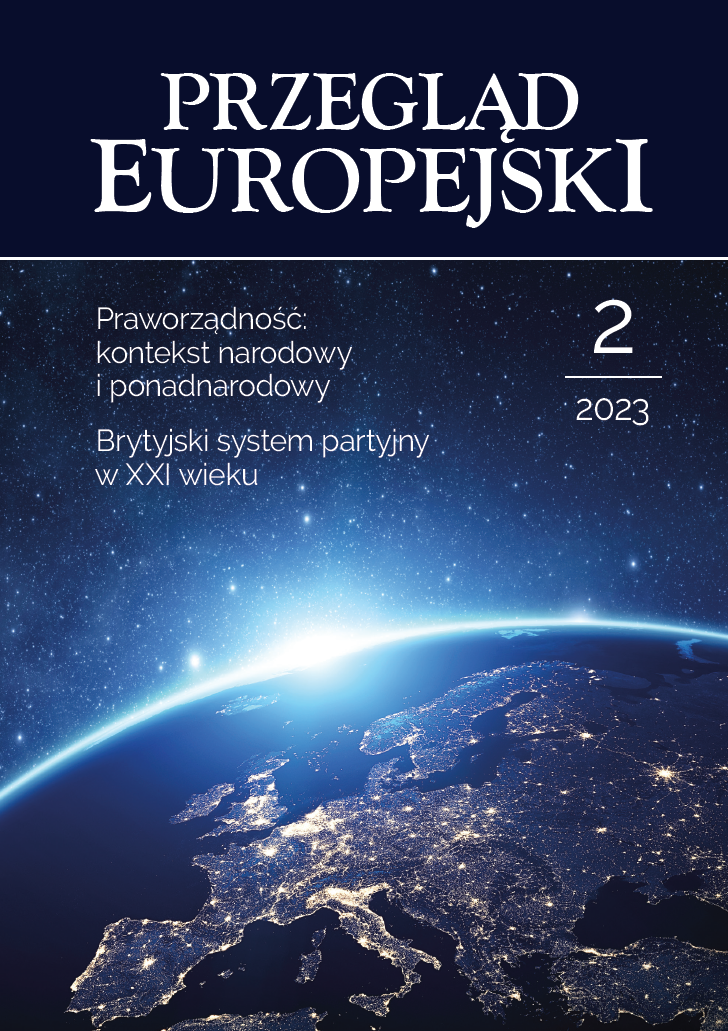
The social policy of the ordoliberal tradition has attracted limited scholarly attention despite an increased interest in the content of Ordoliberalism. This article attempts to fill the research gap through a reconstruction of the ideal-typical ordoliberal social policy model and its conception of the welfare state. At the same time, the author compares the scholarly positions of the first-generation ordoliberal thinkers with three ideal-typical welfare state models of social policy distilled from Esping-Andersen’s seminal book The Three Worlds of Welfare Capitalism (1990). Aiming to uncover the possible distinctiveness of the ordoliberal social policy model, the conclusion is that while the ordoliberal social policy model shares similarities with the liberal and conservative models in Esping-Andersen’s typology, it constitutes a welfare policy model in its own right, not least via its foundation in Vitalpolitik.
More...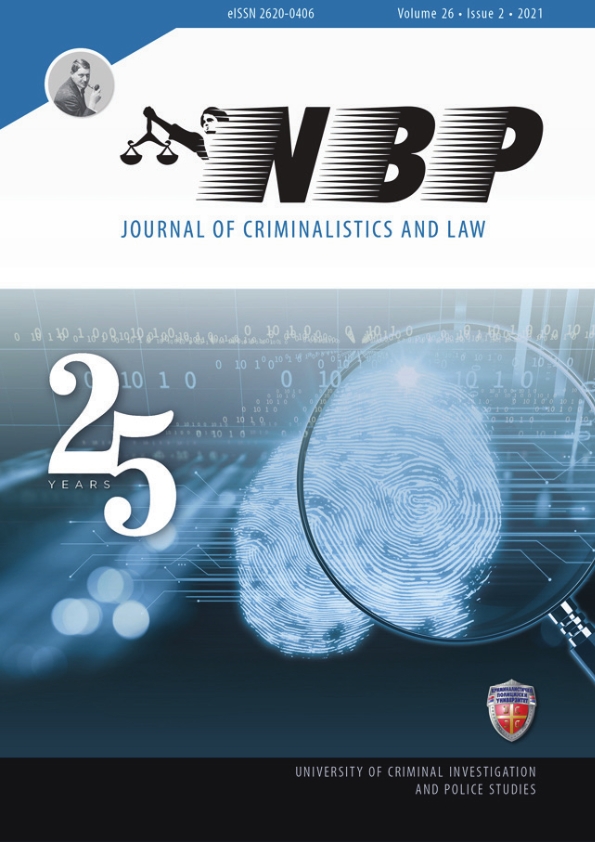
The author analyses one aspect of the right to life - the duty to protect the right to life. That aspect is not encompassed in definitions of the right to life in clear and explicit words. However, it is elucidated through the process of interpretation by various bodies, both international and national. Explicit inclusion of this element is thoroughly analysed in General Comment No. 36 adopted by the UN Human Rights Committee and it presents the starting point for the analyses in this paper. The duty to protect the right to life has also been elaborated in specific cases before the UN Human Rights Committee, the European Court of Human Rights and constitutional courts. Several of these cases have also been analysed within this paper. The aim of the paper is to identify the scope and limits of the duty to protect the right to life.
More...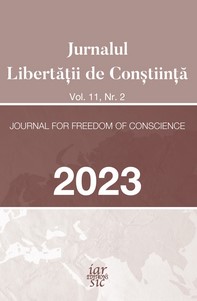
The contemporary world is marked by a delicate balance between upholding individual freedoms and addressing global crises. Global challenges, such as pandemics, climate change, and major conflicts, have brought about significant changes in societal dynamics, including the realm of individual liberties. Although these crises necessitate urgent and often restrictive measures to save lives and prevent environmental degradation, the impact on individual freedoms is inevitable. It is imperative to strike a balance between collective needs and protection of individual liberties during global crises. Through transparency, public consultation, and maintaining open dialogues with citizens, governments can ensure trust and support for restrictive measures while still safeguarding fundamental freedoms within necessary limits to protect the common good. This paper explores the intricate interplay between global crises and the affirmation of freedom and human rights. It delves into the impact of global crises on individual liberties, the protection of human rights during these challenging times, institutional responses, and the crucial role of the international community in upholding and promoting human rights. The study also emphasizes post-crisis measures to safeguard and advocate for human rights, thereby striving to achieve a world where human rights are upheld, irrespective of circumstances.
More...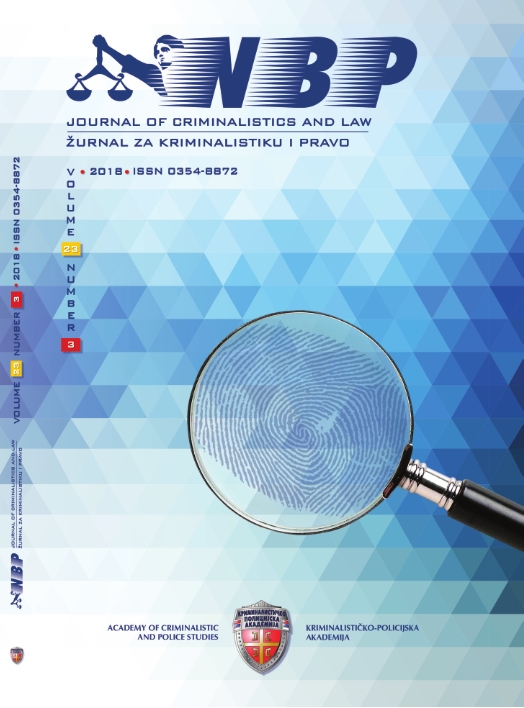
Successful way of fighting against modern forms of crime is conditioned by high level of specialization of measures, procedures and state authorities, as carriers of institutional state coercion. As professionalization and high level of perfection of modus operandi make state authorities work much harder during detection and sanctioning perpetrators of criminal acts, where classic investigation methods have no effect, it is necessary to apply special investigative techniques. Their use in criminal procedure has to be based on strictly regulated terms of law, considering that it inevitably causes breach into sphere of guaranteed rights and freedoms of individuals, and their protection stands in defence from arbitrary conduct of states authorities. As secret surveillance of communication is one of the most common investigative techniques, the author in her work strives to review if this investigative technique is adequate and sufficient way of opposing certain kinds of crime, as well as if and how it comes to violation of the guaranteed rights and freedoms, and what the practise of European Court of Human Rights is in case of arbitrary acts of state authorities.
More...
In this article, the author's goal was to analyse the most illustrative cases in the jurisprudence of the European Court of Human Rights that are relative to the problem of hate speech as one of the most complex and difficult forms of freedom of expression abuse. At the same time, a brief overview is made of the sources of law which are most important for the ECHR jurisprudence within the subject of hate speech. Through the basic postulates adopted in the mentioned jurisprudence, the author shows the evolutionary path of regulation, and moreover, the understanding of the problem of hate speech as an omnipresent issue. Its contemporary forms of manifestation are also the subject of analysis. It is in fact precisely them that represent a special challenge not only to the judicial bodies, but also to the lawmakers. By analysing the relevant case-law, the author strives to answer the dilemma arising from the attempt to the equitable and just balance of the guaranteed freedom and its necessary limitations imposed in cases of social need. This basic question leaves one without the possibility to take an exclusive position, save in the fact that through the analysis of the case-law, the author concludes that the freedom of expression, even though a universal and omni-guaranteed rights of every human, cannot be an absolute right. For the sake of precision, the author limits this conclusion solely to the situations when the abuse of freedom of expression is in question, and hate speech as its most severe form.
More...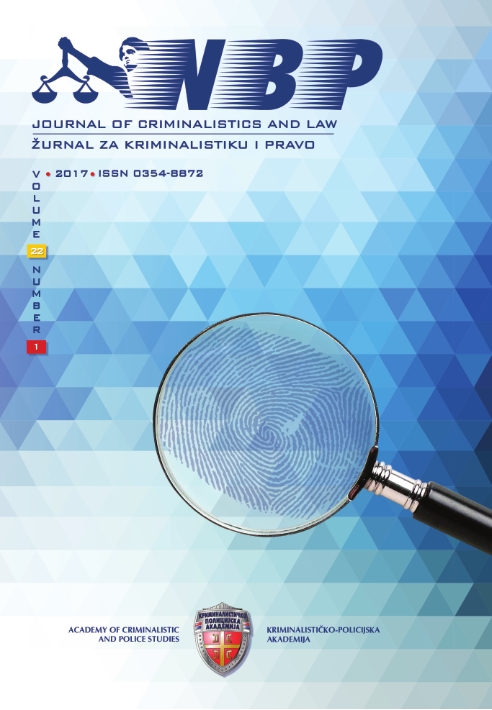
Is the coexistence of law and evil a possibility or necessity taking into account that law is an imperative and as such a possibility of evil? The issue of possible coexistence of law and evil contains the issue of the binding power of law itself. If the binding power of law can be found only in a sanction, which appears in law due to its heteronomous character, then that kind of legal system cannot count on longevity. Thus, the existing evil cannot be uprooted merely by legal sanctions, but by law established on true values. That axiological level of the existence of law allows for the possibility of diminishing and thereby even the total disappearance of evil. What can also come up as a problem in this relation is that law in itself can be source of tremendous evil. This further complicates the issue since law which should be the means and the barrier against evil is in this case compromised.
More...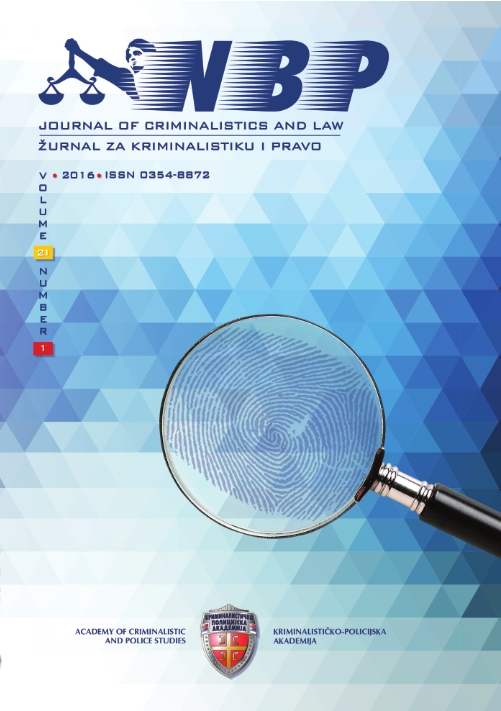
Human dignity and toleration are two extremely important social and legal values. Their existence is evidence of the civilization and cultural development of human societies. For this reason, they should be carefully fostered in them because it has to do with fragile values, subject to changes and destruction. It seems that barbarism is stronger than civilization, destruction than creation, primitivism than culture. Perhaps, it is for a simple economic reason: it is easier to yield to the forces of entropy and apply less energy than to apply more energy to maintain law and order. Civilization and culture are very expensive whereas barbarism is almost free. Despite their relatedness and numerous common points, it has to do with different values though. Human dignity emanates from the human nature itself, while toleration stems from civilization and culture. The former is the generic human characteristic, and the latter is the acquired social characteristic. When existing together, they supplement harmoniously one another. However, it does not have to do with the relationship of equality, for dignity can exist even in the absence of toleration, but toleration cannot exist without dignity. Despite numerous international and national documents in which human dignity and toleration are emphasised as the first-class values, which indeed they are, almost alongside with the leading justice, not much has been done even up to date to strenghten and develop those values. In fact, one gets the impression that all is done to destroy them, though not by the use of force, but covertly, for instance, by the unjustifiable narrowing of the civil freedoms and rights on account of the undue expansion of the human freedoms and rights. As a result, there is an increasing number of offences committed against human dignity and toleration in the world, while the lifestyle of the citizens planetwide becomes growingly painful. With the history being overabundant with violence and values always peaceful, today it is even more important to keep in mind a famous Voltaire's sentence from his equally renowned 'Treatise on Toleration', which sentence suggests that though we don't have to agree with what is said, we have to defend the right that it be said at all costs. All that may ensue from this famous Voltaire's sentence should have an extremely cautious and balanced treatment, so as not to be misused.
More...
Within the present paper a new phenomenon has been elaborated - a phenomenon of expanding jurisdiction of the present international criminal courts. At the moment there are two ad hoc International Criminal Tribunals, one permanent International Criminal Court and several hybrid and internationalized international criminal courts. Ad hoc Tribunals are in the phase of transformation into the UN Mechanism for the International Criminal Tribunals, as a completely new forum, thus expanding Tribunals jurisdiction in a new direction. As for the International Criminal Court, desirable mode of its expanding is through the increase of its member states, in the overall list of member-states. What is happening in reality is that states are approaching ad hoc at the ICC's docket, as the situation directs them. Tendency in the realm of the international criminal judiciary is that creation of new international criminal courts is expected, although not warmly accepted. With the multiple international criminal courts existing, in the same ratione materiae jurisdiction, it is highly expected that the overlaps will occur as well as the expanding of the jurisdiction that is beyond the usual terms of norms interpretation. The focus of this paper is on a dilemma - whether such a situation will provoke coherence or chaos.
More...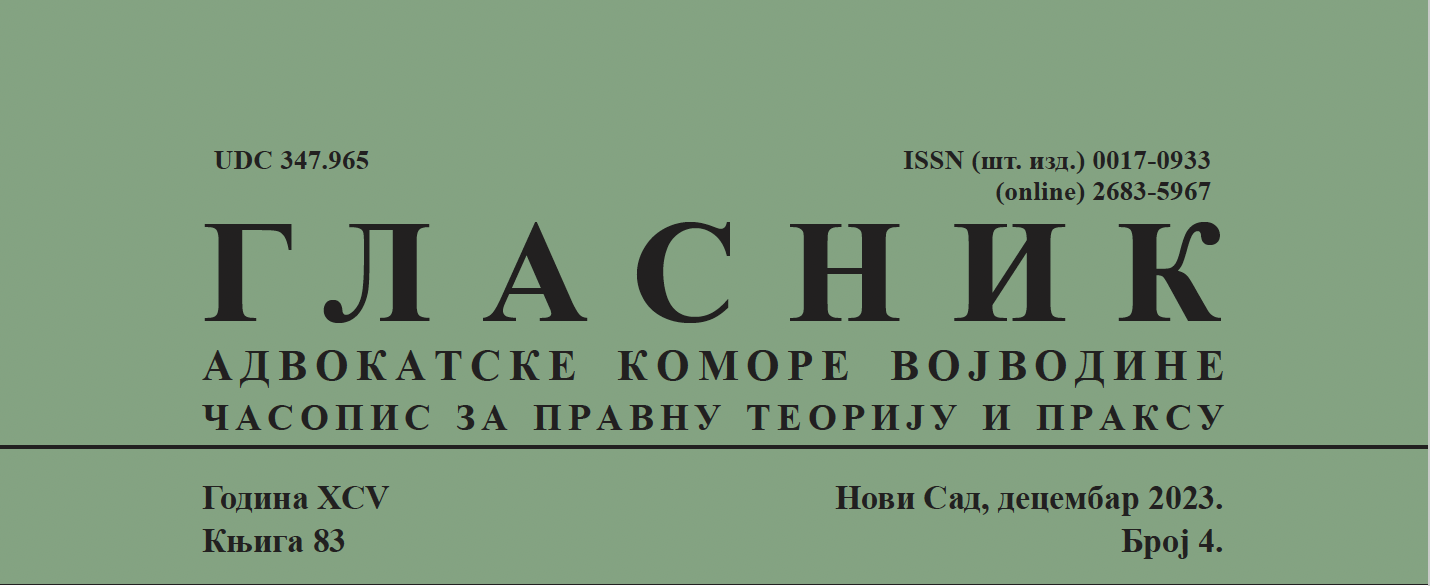
The right to a healthy environment is not explicitly mentioned in the European Convention for the Protection of Human Rights and Fundamental Freedoms from 1950. The mentioned right is more recent and belongs to human rights of the third generation In the final Declaration of the United Nations conference on the human environment held in Stockholm in 1972, the basic human right to freedom, equality and adequate living conditions in an environment that allows an individual to live in dignity and wellbeing is mentioned for the first time. Although the right to a healthy environment is not mentioned in the European Convention for the Protection of Human Rights and Fundamental Freedoms, it is still given importance through the judgments of the European Court of Human Rights, which is responsible for considering violations of the said Convention. The protection of that right is linked to other rights guaranteed by the Convention, such as, for example, the right to life, right to private and family life, etc. The aim of the research in this paper is to indicate the importance of establishing a guarantee of the right to a healthy environment, as well as the increasing importance of its protection as a prerequisite for the enjoyment of some other basic human rights. The paper uses the method of content analysis. In addition to the analysis of the Draft Protocol to the European Convention for the Protection of Human Rights and Fundamental Freedoms, we also analyze the content of the verdicts of the European Court of Human Rights.
More...
Ubrzani razvoj novih tehnologija, uključujući i veštačku inteligenciju,koje se koriste u cilju obrade podataka o ličnosti predstavlja sveveći izazov za zakonodavca kada je reč o zaštiti prava na privatnostzajemčenog čl. 8, st. 1 Evropske konvencije, ali i čl. 42 Ustava RepublikeSrbije kojim se explicite jemči pravo na zaštitu podataka o ličnosti.S tim u vezi, standardi uspostavljeni odlukama Evropskogsuda za ljudska prava u tumačenju obima i sadržine prava na privatnosti drugih prava i sloboda zajemčenih Konvencijom sastavnisu deo unutrašnjeg pravnog poretka Republike Srbije. Ovi su standardiod posebnog značaja, imajuću u vidu da obrada podataka oličnosti putem video-nadzora u našem pravu nije izričito uređena.U radu je predstavljena praksa Evropskog suda za ljudska pravakoja obuhvata ključna pitanja od značaja za obradu podataka oličnosti putem video-nadzora, u svetlu standarda koje Sud primenjujeza ocenu legitimnog ograničenja prava na privatnost idrugih relativnih prava, uključujući i nedavnu presudu u kojojse Sud prvi put izjašnjavao o obradi podataka o ličnosti putemvideo-nadzora sa opcijom prepoznavanja lica.The rapid development of new technologies, including artificialintelligence, which are used in order to process personal data,represents an increasing challenge for the legislator, when itcomes to protecting the right to privacy guaranteed by Art. 8 par.1 of the European Convention on Human Rights, but also Art.42 of the Constitution of the Republic of Serbia which explicitlyguarantees the right to personal data protection. In this regard,the standards established by the decisions of the European Courtof Human Rights in the interpretation of the scope and contentof the right to privacy and other rights and freedoms guaranteedby the Convention are an integral part of the legal system ofthe Republic of Serbia. These standards are of particular importance,given that the processing of personal data through videosurveillance is not expressly regulated in our law.The paper presents the practice of the European Court of HumanRights, which addresses key issues pertinent to the processingof personal data through video surveillance, in the light of thestandards that the Court applies to assess the legitimate limitationof the right to privacy, including the recent judgment inwhich the Court first expressed its opinion on the processingof personal data through video surveillance with the option offacial recognition.
More...
The Council of Europe Convention on Preventing and Combating Violence against Women and Domestic Violence (Istanbul Convention, 2014) is the first legally binding instrument in Europe in this area and the most far-reaching international treaty to combat this serious violation of human rights. The Convention aims at zero tolerance towards violence against women and domestic violence and represents a major step forward in legal terms. By accepting the Istanbul Convention, the governments of the signatory countries undertake to reform their laws, to introduce concrete measures and to allocate resources for the effective prevention and fight against violence against women and domestic violence. The global importance of the Convention is contained in the comprehensive approach to the fight against violence against women and domestic violence and in the fact that it is open for access to countries that are not members of the Council of Europe. In order to monitor the effectiveness of the implementation of the Convention, the independent expert body GREVIO was established. Serbia ratified the Istanbul Convention in 2013. The questionarises to what extent the provisions of the Istanbul Convention have been applied in Serbia, especially when it comes to the prevention and fight against sexual and gender-based violence against women. GREVIO Report with recommendations for Serbia was published in January 2020. The standards and principles established in the Istanbul Convention on preventing and combating violence against women and domestic violence have an emancipatory character and a positive transformative potential for the modernization of the relevant legal framework, public policy measures and administrative practice in Serbia. The concluding remarks are focused on accentuating the importance of implementing the necessary legal reform in Serbia, as a starting point and catalyst for removing negative gender stereotypes towards women.
More...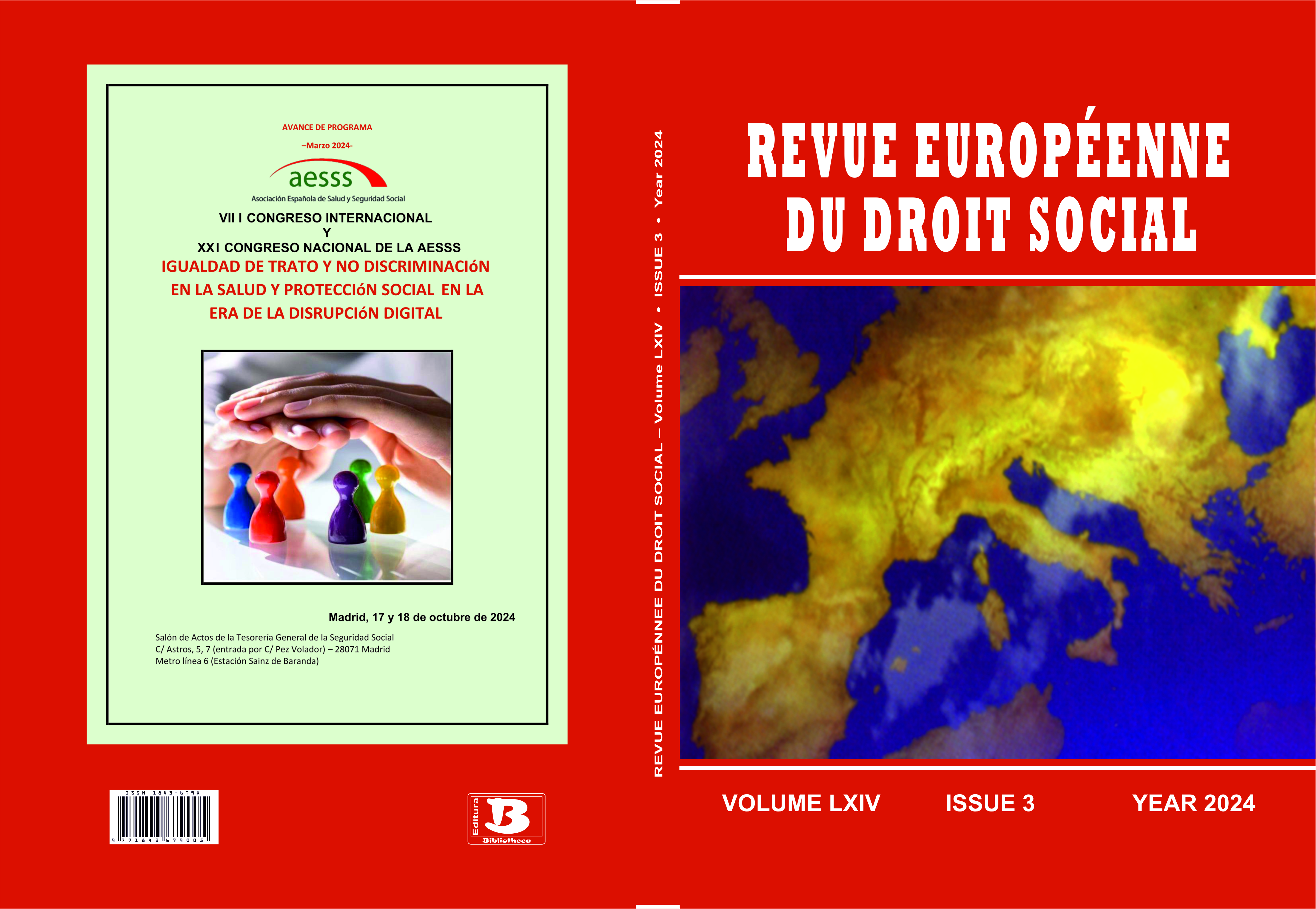
In the perspective of education through culture, the museum fully plays its role. Acting as a guarantor of memory, a transmitter of meaning, and a facilitator of access for a public seeking sensitive experiences to live, the museum reiterates the debate on lifelong education. Given the considerable stakes involved, it seems relevant to show how the framework and time specific to informal and non-formal education promote cultural offerings. In this perspective, knowledge and learning in the digital age point to a paradigm shift. Concepts such as "perception," "creation," "operation" of cultural places, invite us to grasp the kaleidoscopic facets pointing towards the virtualization of the museum. Struggling to find its true place in digital culture, the museum requires a rethinking of the time-space configuration. The "here and now" tandem unfolds multiple levels of reading associating physical locations and presence with virtual sites. Our presentation will include a brief insight into the establishment and evolution of the museum institution in France, followed by an analysis of the "public - museum - cultural policy" relationship. Given that the virtualization of the museum raises numerous questions reflecting the major concern of the increasingly heterogeneous public's accessibility, some practical examples of digital databases will illustrate what we could call a culture of ubiquity.
More...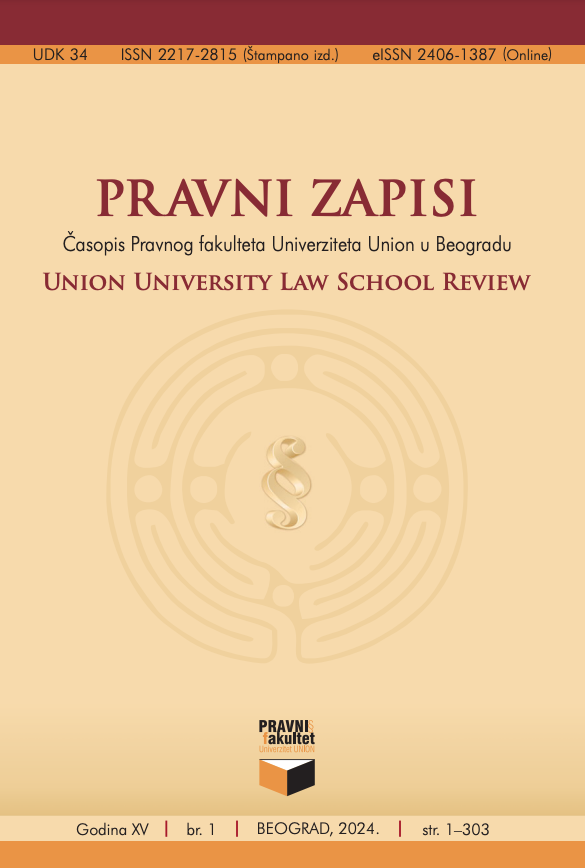
State socialist Hungary undertook historically unparalleled action to satisfy the health needs of its population. To support its efforts, it recognized in its constitution the protection of health as an essential state task and, later, a right to health. Although formulated as a right of citizens, the right to health was not available to enfranchise the individual. Instead, it expressed common social needs, as well as the responsibility and the institutional obligation of the socialist state to take care of those needs. This emphasis on needs over individual rights had a crucial impact on the implementation of the right to health. Contemporary and retrospective policy and sociological analyses reveal that the healthcare system in state socialist Hungary left the individual exposed to institutional and professional interests within the health system, and their vulnerability as a patient was regularly exploited.
More...
The horizontal effect is still a novelty in the science of law, especially constitutional law. However, it is currently an important element of discussion in the scientific discourse and is an important element of the considerations of the Constitutional Tribunal, the Supreme Court and common courts. However, it is worth remembering that the so-called The „horizontal effect” has certain variations, so the purpose of this article is to discuss the so-called enhanced horizontal effect
More...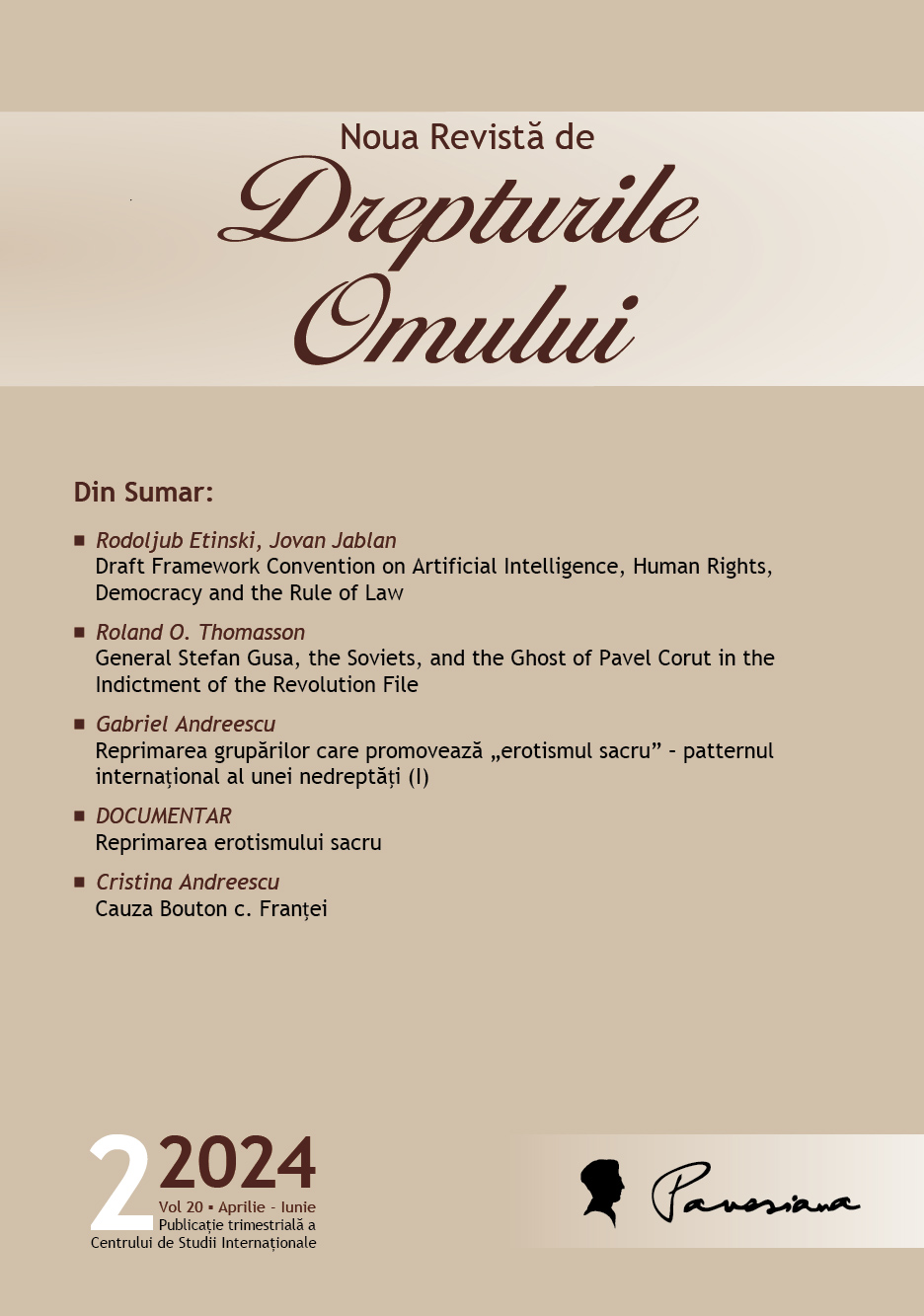
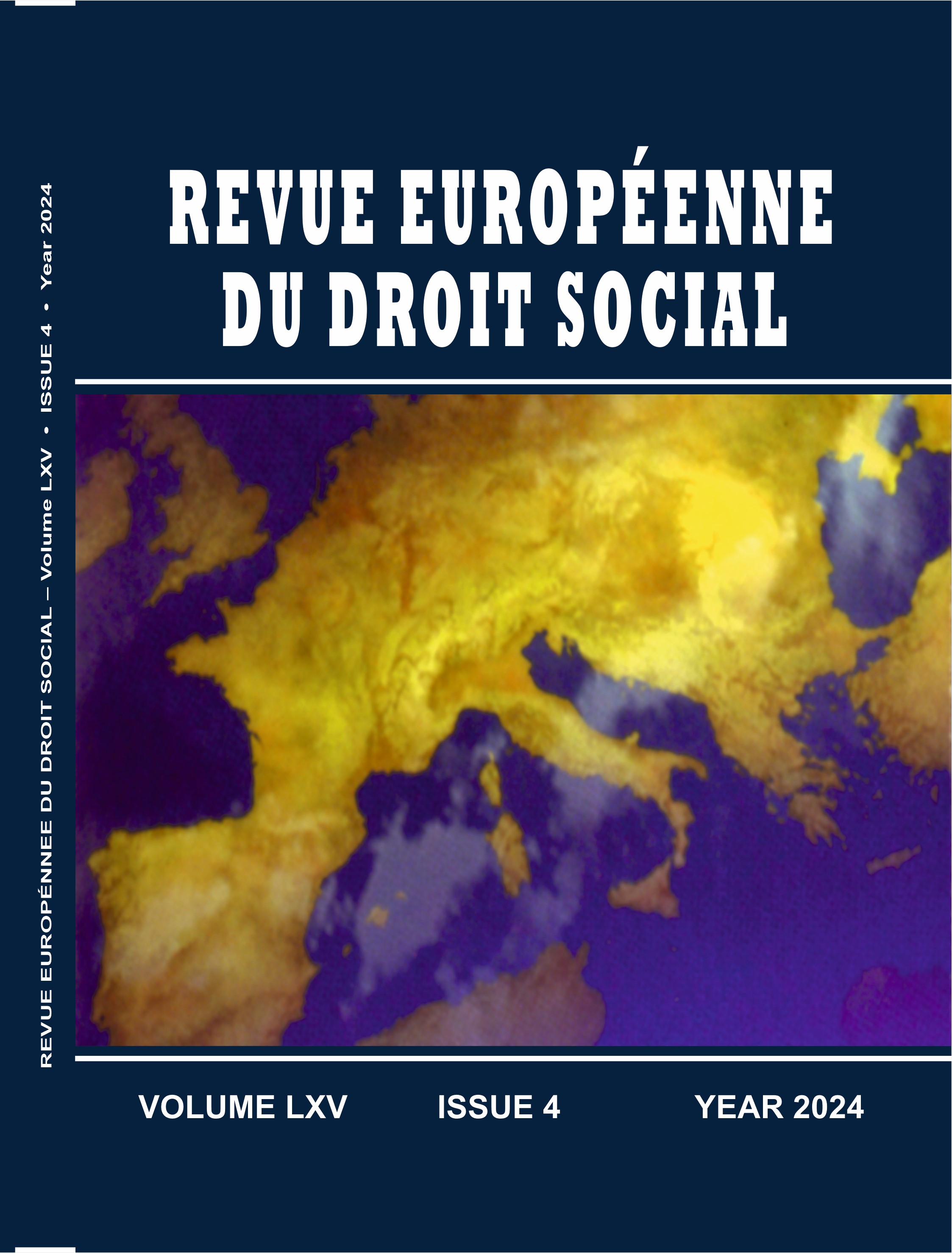
The European Convention on Human Rights (ECHR) is widely recognized for its protection of civil and political rights. However, it has fewer explicit provisions for social and economic rights. The majority of social and economic rights also apply to the right to work. The ECHR indirectly protects certain social and economic rights, or at least social and economic interests, which have garnered attention. The Convention can be said to protect at least some aspects of the right to work. This is especially true for negative obligations and non-discrimination obligations. This article provides an overview of the right to work and discusses how case law offers protection for its components
More...
Albania endured a brutal communist dictatorship for over 45 years, which had severe effects on the rights of tens of thousands of people and the country's social fabric. The regime employed criminal tactics and justified violence and manipulation in the pursuit and retention of power through the ideology of "class war" and "the dictatorship of the proletariat.". The paper is based on an analytical research method that aims to highlight social awareness as one of the main features of transitional "legal approaches" designed to bring justice and reveal the truth about the bitter communist past. The main focus of the study is to assess whether the outcomes of transitional justice in Albania have reached society, particularly the young generation. In addition to using the doctrinal research method, the article employs an empirical approach by administering a questionnaire to evaluate students' perceptions of their awareness of the communist past. The study concludes that knowledge about the past is still relatively low among youngsters, and it suggests that the state should take more proactive and coercive measures, such as utilizing textbooks and organizing extracurricular activities, to reach the new generation.
More...